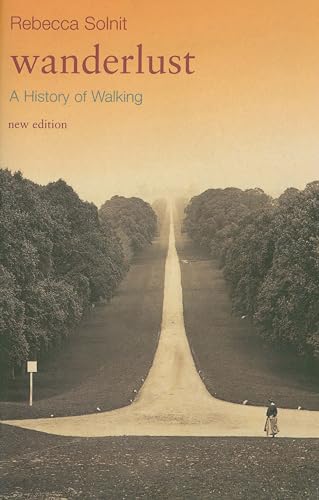

They inspired other poets, painters, the start of scenic tourism, and the rise of the word “picturesque”. Later, William and Dorothy Wordsworth wrote eloquently about their walks/hikes in the Lake District. I sometimes find that true myself - though it can be just as true of a car journey or a private meal. “ Walking provided shared seclusion for crucial conversations”

Image: Lady in a Garden by Edmund Leighton ( Source.) First, there were the formal gardens of the eighteenth century, where those who didn’t need to work could exercise (gently) on land not needed for cultivating food. Walking “as a conscious cultural act” is a remarkably modern phenomenon. That reminded me of a favourite line from Life, the Universe and Everything that the knack of flying is “to throw yourself at the ground and miss”. “ Walking begins as delayed falling and the fall meets with the Fall.”

Image: Evolution of human skeleton to bipedalism ( Source.) It frees our hands, but the resulting changes to the human pelvis limit the size of a babies’ heads, so could ultimately cap our intelligence! Other bipedal creatures have wings or tails, or they hop or jump. Hence, this “review” is just notes on pages 1 to 103 of 291.

If you want a literate non-fiction book about the history and philosophy of walking, this may be for you. I bought this on a whim, after being stunned by the ethereal beauty and insight of A Field Guide to Getting Lost this summer, which I reviewed HERE. A product of the California public education system from kindergarten to graduate school, she is a columnist at the Guardian and a regular contributor to Literary Hub. Her forthcoming memoir, Recollections of My Nonexistence, is scheduled to release in March, 2020. Writer, historian, and activist Rebecca Solnit is the author of more than twenty books on feminism, western and indigenous history, popular power, social change and insurrection, wandering and walking, hope and disaster, including Call Them By Their True Names (Winner of the 2018 Kirkus Prize for Nonfiction), Cinderella Liberator, Men Explain Things to Me, The Mother of All Questions, and Hope in the Dark, and co-creator of the City of Women map, all published by Haymarket Books a trilogy of atlases of American cities, The Faraway Nearby, A Paradise Built in Hell: The Extraordinary Communities that Arise in Disaster, A Field Guide to Getting Lost, Wanderlust: A History of Walking, and River of Shadows: Eadweard Muybridge and the Technological Wild West (for which she received a Guggenheim, the National Book Critics Circle Award in criticism, and the Lannan Literary Award).


 0 kommentar(er)
0 kommentar(er)
